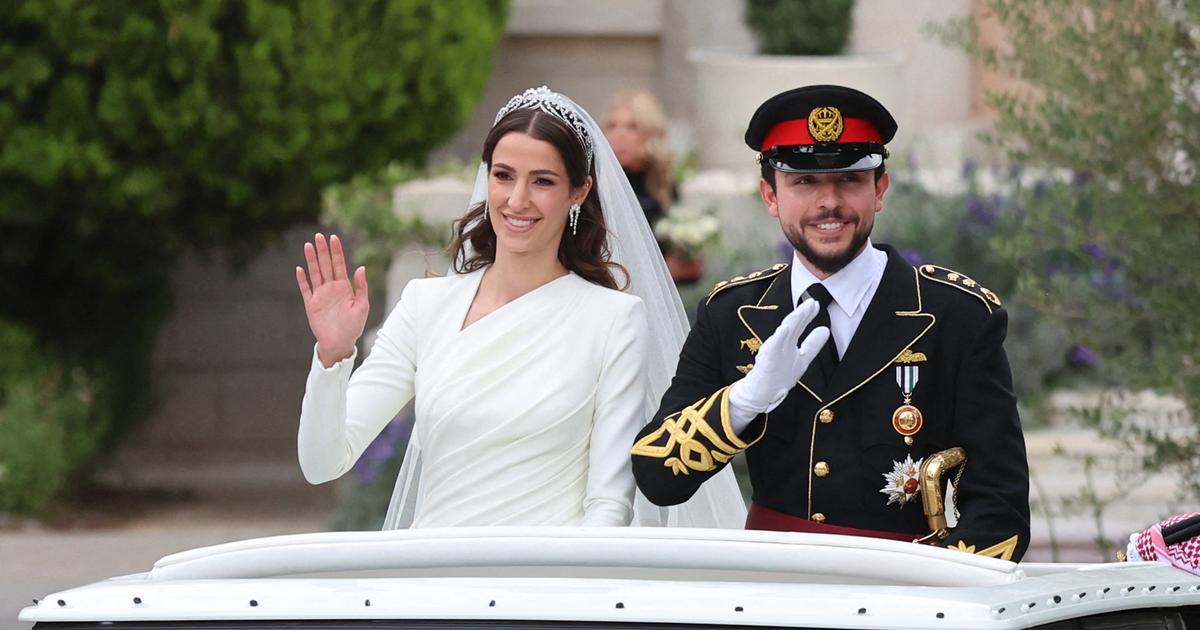PSOE and PP, which have governed these 43 years of democracy and have more than 200 seats out of 350 in Parliament, are not in favor of a Crown law that regulates the House of the King and less in the midst of this new crisis of the institution.
La Moncloa, which concentrates relations with La Zarzuela, would be content like the PP with some adjustments in its modernization although the Socialists are open to further limit, as Ciudadanos, the inviolability of the monarch.
We can finalize a project that would limit the King's accounts and speeches.
“The King wants a constitutional Monarchy adapted to the Spain of the 21st century.
Renovation, accountability, Felipe VI is working there.
Let's go step by step.
They will already learn how the Crown renewal roadmap materializes in terms of transparency and exemplarity ”.
That response from the president, Pedro Sánchez, in the last press conference of 2020 last Christmas, opened the way to much speculation about the imminence of some reforms in the Headquarters of the State that quickly, however, La Moncloa waited to curb expectations about the making even of a law on the Crown.
A long-standing demand for formations such as Podemos or Más País.
PSOE, PP, Vox and, to a large extent, Citizens are not about to promote a Crown law now because they consider, above all, that it would give way to an inopportune debate on the viability of the monarchical institution itself, at another very delicate moment for the House of the King.
On February 25, EL PAÍS announced that the emeritus king has begun a second process of fiscal regularization, with which more than five million undeclared euros would appear in the public coffers, and last week it was known that the infantas Cristina and Elena They had been vaccinated against covid during a visit to their father, a resident of the United Arab Emirates since the summer, without waiting their turn according to Spanish protocols.
Everything related to the Monarchy is now so complex for some parties that they prefer to avoid the issue and not take a position.
Or, as in the case of the PSOE, pass the responsibility until placing it only in the position set by the president.
Sánchez spoke in December of going "step by step" with the Casa del Rey to deepen transparency measures and in that sector of the Government and the PSOE no one leaves that script.
La Moncloa and La Zarzuela
In La Zarzuela they prefer not to be asked.
And they use the same metaphor: "The House keeps pace with what the legislating parties decide, here it is not legislated, nothing is slowed down or blocked."
Of course, it is pointed out that their times are neither the political nor the media: "When it comes to changes in the first institution of the State, they must be approached with calm, calm and a deep legal analysis and in the area that corresponds to it."
That is another debate.
The drafting of a Crown law, which neither the PSOE, PP, Cs or Vox want, would not be addressed in an open discussion between parliamentary groups even as yet another organic law.
All the sources consulted agree that this is a more delicate matter, to agree with discretion.
Sources from those parties admit that these negotiations have not started.
The PSOE, in this matter, does not have and will not have its coalition partner on its side.
In Unidos Podemos they continue to define themselves as republicans, in favor of a referendum on the continuity of the monarchy, and they already advanced in summer, after the departure of the emeritus king without his knowledge, that they would like to face a Crown law.
Faced with the refusal of the other parties, Unidos Podemos is preparing to register its project in this period of sessions.
The text, as advanced this Christmas the president of his parliamentary group, Jaume Asens, and ratify sources of the formation, is almost finalized.
In the Crown Bill of United We Can, as EL PAÍS has learned from sources in its management, it is contemplated to establish what the King can do and what not.
One of its objectives is "to end the opacity of the monarchy."
The same sources emphasize that it is not admissible for Spaniards to find out about the current accounts that the emeritus king has due to a criminal investigation.
This United We Can project would thus establish the prohibition for the King, while he receives a public salary for his institutional role, of doing business as an intermediary or being a commission agent taking advantage of his status as head of state.
We can demand the regulation of real accounts and prohibit the Monarch from having bank deposits abroad because they understand that "the head of state should set an example and pay taxes in his country."
The formation led by Pablo Iglesias maintains that the new Crown law should also regulate the King's own speech, “so as not to repeat political positions such as that of the speech of October 3, 2017”, when Felipe VI addressed the Spanish before the emergency situation derived from the holding of the illegal referendum in Catalonia.
United We can defend that this speech "crossed the line of what we understand by doing politics, aligning itself with the most talkative positions and losing its symbolic and neutral role."
This unambiguous position of United We Can with respect to its claims to end the Monarchy is what is most important in this debate to PP and Ciudadanos.
The popular deputy José Antonio Bermúdez de Castro, an expert on constitutional issues, anticipates the rejection of the PP in line with what was stated by its leader, Pablo Casado: “We do not see the need for a Crown law and we would only accept to retouch some of the 10 Articles of Title II of the Constitution on the monarchical institution to strengthen it, but we fear that trying now to develop some precept, such as the inviolability of the King, would only generate tension ”.
The deputy spokesperson for Ciudadanos in Congress, State attorney Edmundo Bal, confirms that they are unaware of the Government's intentions.
And he points out that in order to "safeguard and prop up the good name of the Crown against those who interestedly attack it with tricks to undermine the 1978 Constitution" the Executive should study those initiatives with those who believe that the head of State played a "determining role ”, Precisely, in the face of the independence challenge in Catalonia.
Cs, yes, it is "favorable to define and clarify the inviolability of the King, so that it is restricted to the scope of the acts committed in the exercise of the position", as well as to increase transparency and clarify and define well who is part of the Royal House "for legal and protocol purposes."
This demand to limit the inviolability of the King and Queen was the meaning of two bills registered in September by Más País and just two weeks ago by ERC.
That last initiative was again rejected by 278 votes, those of PSOE, PP, Vox, Cs and UPN (80% of the Chamber).
Only the 74 deputies from Podemos, ERC, Junts, PNV, EH Bildu, Más País, Compromís and BNG voted in favor.
The PSOE once again argued that a great consensus is needed for such a proposal.
PP and Vox see it unnecessary.
The popular Bermúdez de Castro defends that "the royal prerogative as to how far its inviolability extends is absolute and cannot be modulated" and interprets that the constituents designed it this way by limiting the power of the Monarch so much "to preserve their neutrality."
The last audit of the Casa del Rey dates from 2019
Some parties have pointed out that one of the advances that could be applied to the Casa del Rey should be on its transparency and the more detailed control of its accounts and budgets.
Article 65 of the Constitution now specifies: “The King receives a global amount from the State Budgets to support his Family and House, and freely distributes it.
The King freely appoints and relieves the civil and military members of his House ”.
From the PP and La Zarzuela remember, in any case, that Felipe VI, upon arrival in 2014, signed three agreements with different State services, among others the General Intervention, to voluntarily submit to internal and external inspections and audits, on their budgets, which are then published on its website.
The latest dates from 2019.








